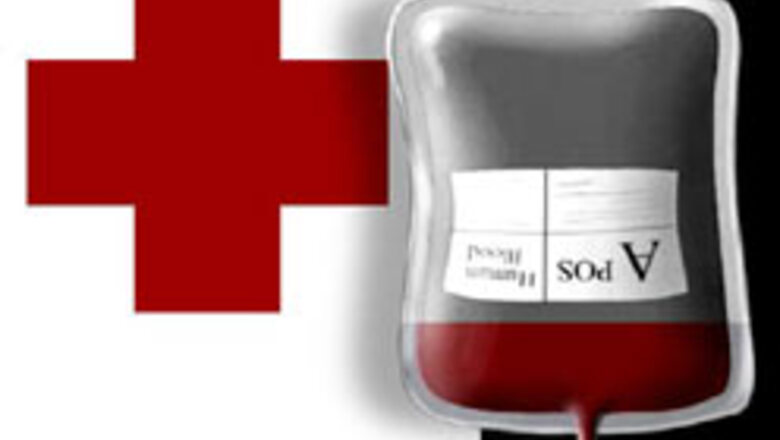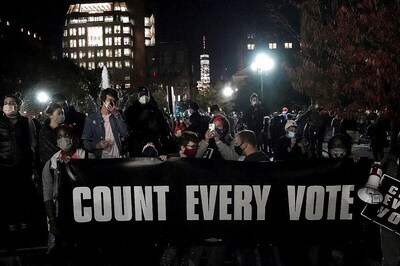
views
New York: In a breakthrough that could end shortage of blood globally, scientists have discovered enzymes that can efficiently convert blood groups A, B and AB into the universal O group, which can be given to anyone.
The two novel glycosidase enzymes were identified in bacteria by an international team led by Henrik Clausen of the University of Copenhagen in Denmark, science journal Nature reported.
The researchers hope that the enzymes will both improve the erratic supplies of blood around the world, and also the safety of transfusions.
Clinical trials to test the safety and effectiveness of their converted blood are being planned, the report said.
The ABO blood-type system is based on the presence or absence of the sugar-based antigens 'A' and 'B' on red blood cells.
Type O blood cells have neither A nor B antigens, so may be safely transfused into anyone. But types A, B and AB blood do, and cause life-threatening immune reactions if they are given to patients with a different blood group.
The bacterial glycosidase enzymes strip these antigens away from A, B and AB blood, Nature said.
The idea of such antigen-stripping, says Nature, goes back to the early 1980s, with the discovery of an enzyme in coffee beans that removes B antigens from red blood cells.
Early-stage clinical trials showed that the converted blood could be safely transfused into individuals of different blood groups; no traces of enzyme or antigen remained to cause reactions.
But the enzyme reaction was far too inefficient to make large-scale conversion practical, the report said.
Clausen's team screened 2,500 extracts from different bacteria and fungi for their ability to cleave off A and B antigens.
The newly discovered bacterial 'B' enzyme is nearly 1,000 times more efficient than the coffee-bean B enzyme.
The additional discovery of an enzyme to remove A antigens means that all blood types can now be converted.
Type O is the most common blood group, but stocks constantly run low because it is used in all emergency situations where there is no time to determine the patient's own group.
An additional pressure on type-O blood, particularly in the United States, comes from the mismatch between blood donors and recipients.
Most US donors are Caucasian, amongst whom 45 per cent of people are blood group O. But more than
half of African Americans, and nearly all native Americans are O, and so require type-O blood.
















Comments
0 comment